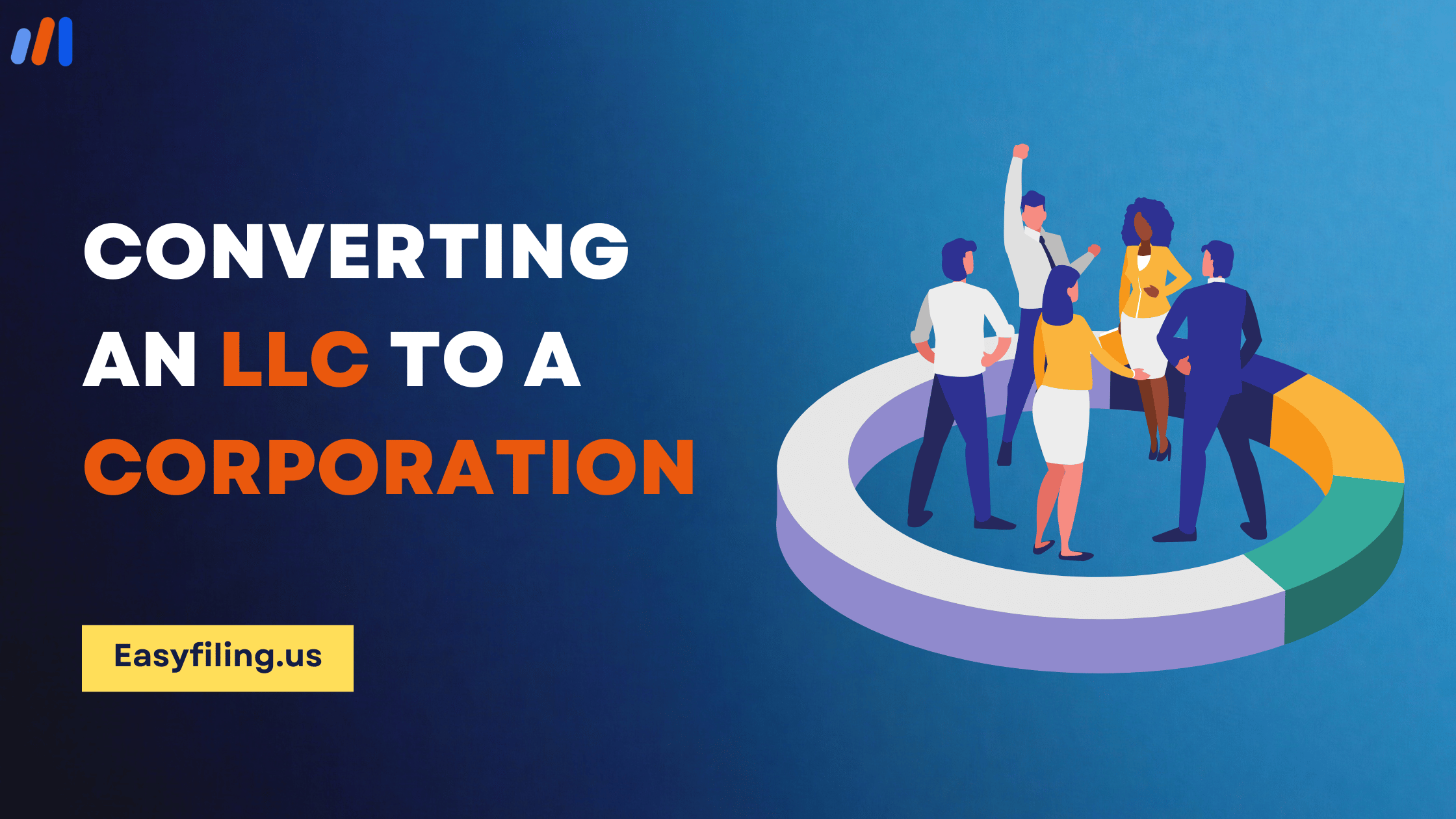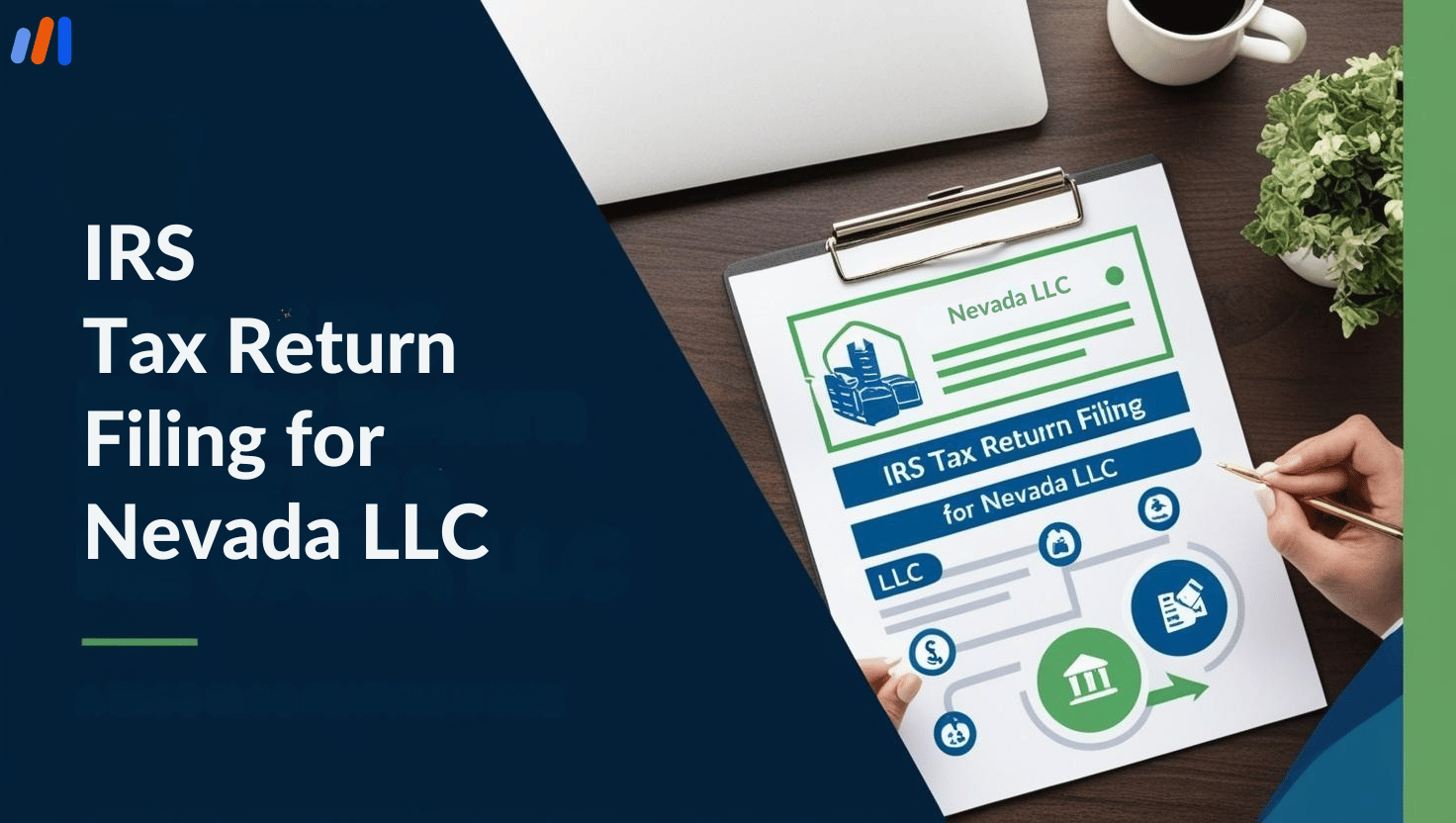Is it safe to say you are prepared to scale up your business? Transforming your Limited Liability Company (LLC) into a corporation offers several benefits, particularly enhanced capital accessibility and credibility. Still, there are so many issues to deal with, and therefore the process of transformation can be overwhelming.
This is a detailed tutorial that will allow a better understanding of the process of conversion from an LLC to a corporation and provide relevant information to help make the decision. We will touch on the pros and cons as well as on the aspects of the change that require legal and financial concerns.
So, without wasting any time, let us go on and see the various opportunities that your business has.
Steps to Converting an LLC to a Corporation
1. Research and Understand Your State Requirements:
Statutory Conversion: Several states allow for winding up a sole proprietorship by allowing a direct conversion from an LLC to a corporation, which is often the most efficient and direct step. There are fewer steps to go through and less paperwork to process. That is why they are very appealing to most business owners.
Statutory Merger: If a direct conversion is not available in your state, you may consider looking at a statutory merger if there is one. This procedure involves forming a new corporation and then consolidating it with an already existing limited liability company. This strategy can be advantageous although it is complicated depending on the nature of the business.
Non-Statutory Conversion: Sometimes, you have no option but to take non-statutory conversion which means there is an extra step that involves forming a separate LLC and then moving all the property and liabilities of the existing LLC over to the new corporation. As a result, some processes may require more extensive planning and procedures to ensure that all statutory requirements are met efficiently.
2. Prepare Necessary Documents:
Articles of Incorporation: This refers to the fundamental document that describes the organization, the objectives, and the powers of the newly formed corporation. It usually contains information such as the constitution’s name, its aim, the amount of share capital, and the particulars of the registered agent.
Bylaws: These are a set of rules adopted by the corporation to regulate the internal aspects of the corporation, including the appointment, complications of the directors and shareholders, and the conduct of meetings among other management issues of the corporation. For any organization, having concise bylaws facilitates smooth management and adherence to rules.
Resolution of Conversion: This is a legal document put into writing and serves the purpose of stating the conversion of LLC members’ wish to alter the now-existing limited liability company into a corporation. It should capture several processes such as that of voting and that of the members to show what they are approving, and this must comply with the requirements of the law.
3. File the Necessary Documents:
Once all the required documentation has been completed, they have to be filed under the Secretary of State of the respective state. This becomes an imperative step towards performing conversion.
Make sure to pay any fees connected with the above-mentioned activities at this stage as the fees charged for applications vary from one state to another and sometimes depending on the business entity that is incorporated.
4. Update Your Business Records:
As soon as you make the conversion, it is important to revise business licenses and permits. This is to help avoid legal problems with local and state authorities.
This is necessary to ensure that the proper tax status & obligation right now in force are congruent to the new corporate structure.
Lastly do not forget to bring into line your business bank accounts and insurance core to your new corporation status because such changes also influence the business’s financial and legal position.
5. Inform Stakeholders:
Communication is key! It is as important to communicate to the employees, customers, vendors, and other stakeholders about the conversion. This transparency fosters credibility and trust and reduces fear of the changes that may arise.
In addition, they need to change their business website and any marketing material to reflect the new corporation. Such activities may include; changes on the website, the image, and the message and the addresses.
Additional Considerations:
Tax Implications: There might be tax implications that come with this conversion from LLC to corporation. The key sorts of tax burden that might be addressed are how profits will be taxed and whether there will be a change in liability. Such consequences should not be downplayed, thus it is prudent to engage a professional tax planner well in advance.
Financing: The type of corporation you decide to form (C-corp, S-corp, etc.) will also greatly determine your capacity to raise capital. Capital structure will determine who the investors are and how the project will be funded. Make sure that you select one of these structures judiciously as per the envisaged objectives in the future.
Governance: Management of LLCs is less sophisticated since such businesses do not require a board of directors or regular meetings with shareholders. As such, it may improve your credibility in business but may come with challenges on how best to organize the firm to avoid wasting money and time.
Why One Should Convert an LLC into a Corporation?
1. Access to Capital
Attracting Investors: A corporation can interest investors through the issuance of shares. Corporations are usually favored by venture capitalists and private equity because of the ease of investment due to clear structure and easy ownership transfer.
Public Offering: Once you become a corporation, you have the option to pursue initial public offerings, whereby you sell your stocks to the public and raise a lot of money.
2. Official Reputation Improvement
Perception: People tend to regard corporations as more established and credible organizations, thus being beneficial to the clients, suppliers, and partners as well.
Longevity: While LLCs are forced to be closed within a specified time frame, Corporations generally do not have specific time limits which makes stakeholders feel secure regarding the firm’s overall focus and safety.
3. Tax advantages
Corporate Tax: These tax advantages might involve paying a lower tax rate at the corporate tax level in comparison to self-employment taxes depending on the tax structure at the time.
Employee Stock Options: Offering stock options to employees can prove to be a highly effective tax-efficient recruitment and retention reward policy as they form part of the overall employment compensation for employees.
4. Ownership and Transferability
Easier Ownership Transfers: There are also stock shares that are very easy to transfer or be sold or inherited thus enabling changes in ownership without interference with other running activities of the firm.
Multiple Classes of Stock: Corporations may offer more than one class of common share each with different voting powers and profit-sharing allowances resulting in proper control and ownership management
5. Governance and Accountability
Board of directors: Corporations by law must have a board of directors which provides an extra layer of responsibility and control over the business activities. This can result in more organized policy-making.
Formalities: The processes that have been laid down for a corporation, e.g. encumbering annual meetings and minutes, etc, bring forth a better discipline and sense of responsibility in executing tasks.
6. Overseas Growth
Additional Contact Details: International Expansion/Attention or Glitz, Not Just Spin. You want to expand your business globally, and consumer-facing corporations are easily the most employed business structure for this reason.
How Easyfiling Helps with the Conversion:
Streamlined Operations: The task of changing your LLC into a corporation that has a taxation ability is less complicated with the use of Easyfiling since all the legal steps and documents required are done within the right duration.
Cheap: Easyfiling allows for a shift to a corporation with no additional expenses on engaging an attorney since legal services are offered at a lower cost, unlike most law firms.
Professional Help: Easyfiling specializes in helping businesses navigate all the essential steps involved in a conversion, so you don’t have to worry about happening all of it by yourself.
Quick Process: If you want to quickly transform your LLC into a corporation, Easyfiling has been very advanced in the process and will not take long to complete the conversion.
Filing Services: They will also ensure that the corporation meets all of the necessary legal requirements imposed by the corporation at both state and federal levels, including, filing Articles of Incorporation and other requirements such as licenses and permits.
Conclusion
There are good reasons one may opt to change their LLC to a corporation and the factors that inform that are good as most of them are reasonable benefits and include such things as better access to funds, better prestige, taxation benefits, and efficient ownership.
However, it’s essential to carefully consider the potential implications, including tax consequences, governance changes, and the additional administrative requirements associated with corporate entities.
By understanding the steps involved, the necessary documents, and the potential benefits and drawbacks, you can make an informed decision about whether converting your LLC to a corporation is the right move for your business.
File Your LLC Today
25$ off with a coupon
Lock in EasyFiling's transparent rates and get lifetime compliance support at no extra cost.
Get Started Now








